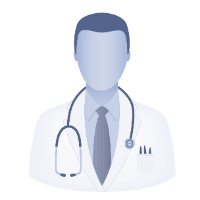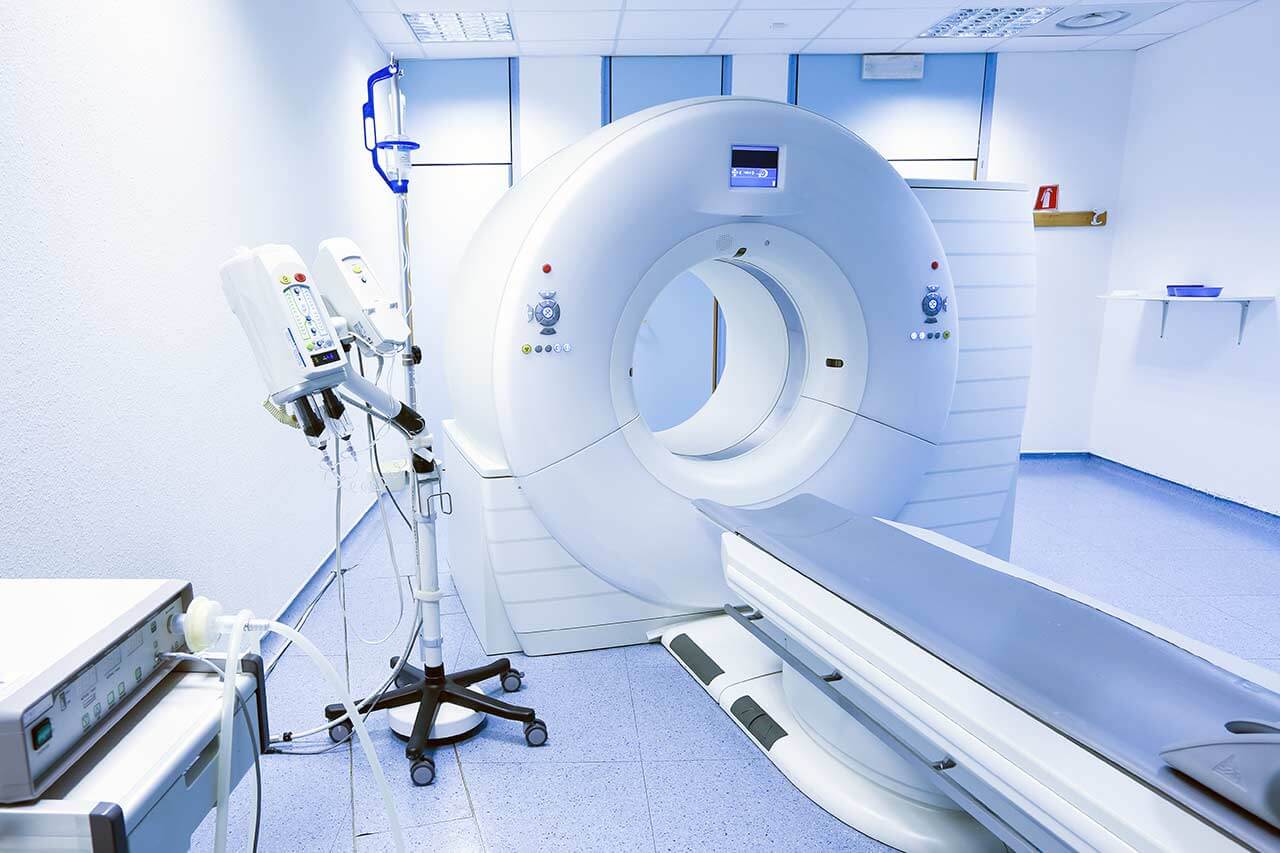
The program includes:
- Initial presentation in the clinic
- clinical history taking
- physical examination
- laboratory tests:
- complete blood count
- general urine analysis
- biochemical analysis of blood
- indicators of inflammation
- HLA-B27 gene
- X-ray
- MRI scan (on indication 1200 €)
- Schober's test
- nursing services
- consultation of all leading experts
- development of individual treatment plan
- written statement
Required documents
- Medical records
- X-ray examination, MRI/CT scan (if available)
Service
You may also book:
 BookingHealth Price from:
BookingHealth Price from:
About the department
The Department of General Pediatrics, Pediatric Neurology, Metabolic Disorders, Gastroenterology and Nephrology at the University Hospital Heidelberg offers the full range of services in these medical fields. The department has an excellent infrastructure and modern technical equipment that allows for the timely detection of the smallest violations in the children's body and their effective elimination. The highly qualified interdisciplinary team of doctors takes care of the health of young patients. It provides not only first-class treatment, but also a friendly, attentive attitude towards each child. The department is headed by Prof. h.c. Dr. med. Georg Friedrich Hoffmann. He is a world-renowned specialist with long clinical experience and unique knowledge in pediatrics.
The service range of the department includes:
- Diagnostics and treatment of general pediatric diseases (general pediatrics)
- Infectious diseases
- Growth, development disorders
- Stomach ache
- Headaches
- Pain in the muscles and joints
- Inflammatory processes in the lymph nodes and neoplasm of unknown origin
- Fever of unknown origin
- Skin diseases
- Tropical diseases
- Rheumatic diseases
- Obesity
- Intoxication
- Diagnostics and treatment of metabolic disorders, including screening of newborns (within the specialized center)
- Amino acid metabolic disorders (for example, maple syrup disease, tyrosinemia)
- Aciduria (glutaric aciduria type I, methylmalonic aciduria, propionic aciduria)
- Carbohydrate metabolic disorders (glycogenosis, galactosemia, hereditary fructose intolerance)
- Disorders of fatty acid oxidation
- Respiratory chain defects and related disorders
- Cholesterol biosynthesis disorders (for example, Smith-Lemli-Opitz syndrome)
- Protein biosynthesis disorders
- Lysosomal storage diseases
- Diagnostics and treatment of neurological diseases
- Developmental disorders
- Behavioral disorders
- Epilepsy
- Diagnostics and treatment of diseases of the endocrine glands, hormonal disorders and diabetes in children
- Diagnostics and treatment of gastrointestinal diseases
- Chronic inflammatory bowel disease
- Short bowel syndrome/intestinal failure
- Liver and pancreatic diseases
- Eating disorders
- Celiac disease
- Diagnostics and treatment of kidney diseases in children
- Acute and chronic kidney failure
- Renal replacement therapy (dialysis or kidney transplantation)
- All modern dialysis procedures (for example, extracorporeal hemodialysis, peritoneal dialysis)
- Care for children and adolescents before and after kidney transplantation
- Psychosocial care for patients and their families
- Other medical services
Curriculum vitae
- 1976 - 1984 Study of Medicine at the universities of Göttingen (Germany) and Birmingham (United Kingdom).
- 1984 Doctorate with honors, University of Göttingen.
- 1984 - 1986 Postdoctoral Fellow, Division of Biochemical Genetics, Department of Pediatrics, University of California, San Diego, USA (Ph.D. L. Sweetman and Ph.D. V.L. Nayhan).
- 1984 - 1991 Clinical training in Pediatrics, Children's Hospital at the University of California, San Diego, USA, as well as in Göttingen and Heidelberg.
- 1992 - 1994 Group Leader, Head of the Section for Metabolic Disorders, Department of Pediatrics at the University Hospital Heidelberg.
- 1994 - 1999 Professor of General Pediatrics, Philip University of Marburg, as well as the Head of the Department of Pediatric Neurology and Metabolic Disorders.
- Since 1999, Professor of General Pediatrics and Chief Physician of the Department of General Pediatrics, Pediatric Neurology, Metabolic Disorders, Gastroenterology and Nephrology at the University Hospital Heidelberg.
Awards and Honors
- 1986 Noel Rein Award of the Society for the Study of Congenital Metabolic Disorders.
- 1994 Award of the Society for the Study of Congenital Metabolic Disorders.
- 2000 Science 4 Life Award.
Research Interests
- Development of screening strategies in patients with cystic fibrosis.
- Pathophysiology and treatment of metabolic disorders.
- Rare hereditary diseases.
Photo: (с) depositphotos
About hospital
According to Focus magazine, the University Hospital Heidelberg ranks among the top five hospitals in Germany!
The hospital is one of the most advanced and reputable medical institutions not only in Germany but throughout Europe. There are more than 43 specialized departments and 13 medical institutes which cover all fields of modern medicine. A distinctive feature of the hospital is the presence of unique therapeutic methods for the treatment of complex and rare clinical cases.
Due to successful clinical practice, the hospital has been holding leading positions in the international medical arena for many years. The basis for this popularity is the combination of the very latest technologies, competent specialists, and active research activities, which allows introducing of revolutionary diagnostic and treatment methods, which save lives.
In addition to the outstanding medical achievements, it is worth noting a particularly friendly and pleasant atmosphere, and respectful attitude towards the patient. Both doctors and nursing staff make every effort to meet all the needs and wishes of the patient, pay due attention to each clinical case, and have personal communication with the patient, which contributes to a positive treatment result.
Photo: (с) depositphotos
Accommodation in hospital
Patients rooms
The patients of the University Hospital Heidelberg live in comfortable single and double rooms designed in bright colors. Each room is equipped with an ensuite bathroom with a shower and toilet. The patient rooms are quite spacious, they have a table with chairs for receiving visitors. Roomy wardrobes are provided for storing personal belongings. It is possible to connect to the Internet. In addition, the hospital offers enhanced-comfort rooms with a safe, refrigerator, and upholstered furniture. Patients have 24-hour access to the services of medical personnel.
Meals and Menus
The patient and his accompanying person have a daily choice of three menus. If you for some reason do not eat all the products, you will be offered an individual menu. Please inform the medical staff about your dietary preferences prior to the treatment.
Further details
Standard rooms include:
Religion
The religious services are available upon request.
Accompanying person
During the inpatient program, an accompanying person may stay with you in a room or hotel of your choice.
Hotel
During the outpatient program, you may live in a hotel of your choice. The managers will help you choose the most suitable options.
The hospital offers a full range of laboratory tests (general, hormonal, tests for infections, antibodies, tumor markers, etc.), genetic tests, various modifications of ultrasound scans, CT scans, MRI and PET / CT, angiography, myelography, biopsy and other examinations. Treatment with medications, endoscopic and robotic operations, stereotaxic interventions is carried out here, modern types of radiation therapy are also used. The hospital offers patients all the necessary therapeutic techniques.
- Endovascular treatment of liver pathologies with LigaSureTM, Ultracision® and Habib®-Sealer devices
- Correction of chest deformities in children (Nass operation)
- Minimally invasive direct coronary artery bypass grafting
- Replacement of ascending aorta (David procedure)
- Operations using the da Vinci robotic system
These are primary lung tumors and metastases in the lungs, benign and malignant liver pathologies, thyroid pathologies, gastroesophageal reflux disease, heart rhythm disturbances and heart failure, infertility, fibromyalgia, damages and pathologies of large joints, polyneuropathy and other diseases.
- Thoracic surgery
- Cardiac surgery
- Urology
- Orthopedics and traumatology
- Obstetrics and gynecology
The hospital's team consists of more than 13,000 highly qualified employees




